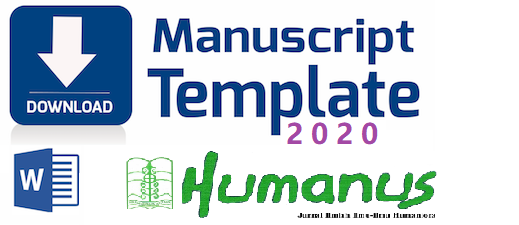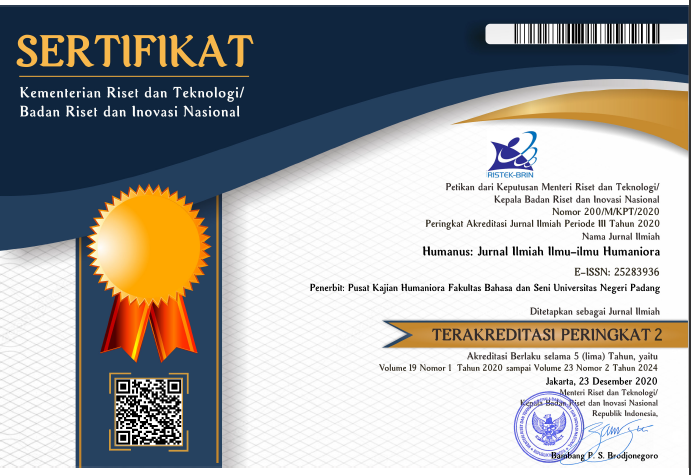ASPEK SOSIO-BUDAYA, KEBIJAKAN PEMERINTAH, DAN MENTALITAS YANG BERPENGARUH TERHADAP INTEGRASI SOSIAL DALAM MASYARAKAT SUMATERA BARAT
 ),
), (1)
 Corresponding Author
Corresponding Author
Copyright (c) 2016 Humanus
DOI : https://doi.org/10.24036/jh.v12i1.3106
Full Text:
 Language : en
Language : en
Abstract
This study aims to explore the socio-cultural aspects, policies, and the mentality that influence social integration in the western Sumatran society. Location of this study spread over counties and cities in West Sumatra, represented by the six District/City, namely: Pasaman Barat, Solok, Pesisir Selatan, Sawahlunto, Dharmasraya, and Bukittinggi. Selection of sample areas is based on the degree of heterogeneity of society. The study was designed in the form of a survey with a qualitative approach. Data collected through interviews and documentation studies. Data were analyzed in stages through data collection (recording), categorizing the data, coding the data by category, and data interpretation. The results obtained from this research is presented in a description of the socio-cultural community which is reflected in the socio-cultural "malakok" as a means of integration of migrant communities with indigenous communities. “Malakok” existence becomes more obvious with the current government policy called "Back to the Nagari". This policy is an attempt to revive the traditional leadership role in the governance system of the Minangkabau society. Lastly, in addition to social integration, malakok strength in Minangkabau society is influenced by the mentality of the local communities such as tribal solidarity, tolerance, loyalty, and openness.
Key Word : the socio-cultural aspects, policies, the mentality, malakok Article Metrics
Article Metrics
 Abstract Views : 2219 times
Abstract Views : 2219 times
 PDF Downloaded : 1076 times
PDF Downloaded : 1076 times
Refbacks
- There are currently no refbacks.
Copyright (c) 2016 Humanus









